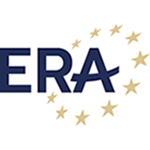Ensuring effective defence in cross-border criminal proceedings
Article by:
Benjamin Koltermann, PR Officer, Academy of European Law (ERA)
The use of European criminal law instruments, such as the European Arrest Warrant (EAW), has a growing impact on the daily work of defence counsel in the EU Member States. Increasingly, defence lawyers have to deal with cases including a cross-border dimension that require special knowledge about these instruments. A training project to be launched in Vilnius in May 2013 by the Academy of European Law (ERA) with financial support from the European Commission will provide training for defence lawyers on European criminal justice and judicial cooperation instruments in the EU.
The European Arrest Warrant
The Framework Decision on the European Arrest Warrant which came into force in 2004 requires national judicial authorities to recognise and enforce European Arrest Warrants issued by judicial authorities in other Member States. Based on the principle of mutual recognition, the EAW is designed to speed up and simplify the transfer of a convicted criminal or a person requested to conduct a criminal prosecution. To avoid the issuing of warrants for minor offences, the Framework Decision provides that EAWs may only be issued for offences punishable by “a detention order for a maximum period of at least 12 months” or “for sentences of at least four months”. The EAW is widely recognised as a success in European judicial cooperation. However, defence lawyers whose clients have been arrested on an EAW face a number of problems to provide effective defence.
Dual representation
Fair Trials International, a UK-based campaign group, has reported on the case of the British lorry driver Alan Hickey who was sentenced in France to 18 months in prison for human trafficking. During his detention, he discovered that Belgium had issued an EAW to put him on trial for people-trafficking and “as part of a criminal conspiracy”. Due to a lack of information about the charges brought against him, his lawyer did not ask for a suspension of the extradition on grounds of the ne bis in idem principle. When he was surrendered to Belgium it became clear that some of the offences in Belgium resulted from the same events that let to his conviction in France. The extradition could have been avoided if Mr Hickey had early access to good legal representation in both Member States (cf. Fair Trials International: case summary).
This case shows the importance of dual representation to provide effective defence faced with EAWs. Legal assistance in the state which issued the EAW is particularly important to ensure the defence obtains the information necessary to evaluate it. A defence counsel in the issuing state may be able to provide the evidence necessary for a refusal of the extradition which could not be obtained otherwise. While not foreseen in the original Framework Decision on the EAW, the European Commission’s proposal for a Directive on the right of access to a lawyer (COM(2011) 326 final) presented in June 2011 within the framework of its so-called “Roadmap on procedural rights” contains an express right to legal representation in the issuing country.
There is, however, no equality of arms between the judicial authorities and defence counsel. While judicial authorities can rely on the national contact points of the European Judicial Network (EJN) to cooperate with their counterparts in other Member States, defence lawyers have no formal EU network at their disposal. This makes it difficult for lawyers in the executing state, especially for those with little experience in extradition cases, to find an appropriate defence counsel in the issuing state to ensure effective representation (cf. Justice: EAWs: ensuring effective defence).
The “Roadmap on procedural rights”
Within the framework of its “Roadmap on procedural rights” the European Commission has taken further steps to achieve common minimum standards of procedural rights in the EU. The Directive on interpretation and translation (2010/64/EU) adopted in October 2010 addresses problems with foreign languages that suspects wanted on an EAW face in the issuing country. To guarantee fair proceedings the Directive provides that suspects must receive high-quality interpretation during investigative proceedings and court hearings. Documents crucial for their defence must be translated within a reasonable time frame. The Directive on the right to information in criminal proceedings (2012/13/EU) adopted in May 2012 provides that accused persons must be given information on their rights and the accusations brought against them as well as access to the materials of the case. Additional steps foreseen within the Roadmap include the right for a detained person to communicate with family members, employers and consular authorities and the right to protection for vulnerable suspects as well as a measure on legal aid for which the European Commission is currently conducting an impact assessment.
The relevance of EU criminal law instruments for defence counsel
European criminal law instruments can have an important impact on the work of defence counsel. When dealing with EAWs they need to be aware of the applicable EU law to provide effective defence to their clients. The seminar series “EU Criminal Law for Defence Counsel” being implemented by the Academy of European Law will be an opportunity for lawyers to improve their knowledge of EU criminal justice instruments and procedural rights. Offering a mixture of training methods, varying from lectures to interactive workshops the seminars will address problems and questions arising from cross-border cases involving instruments such as the EAW and will inform participants on the best ways to get in contact with colleagues in other EU Member States. Seminars will take place in Vilnius, Rome, Dublin, Prague and Barcelona.




